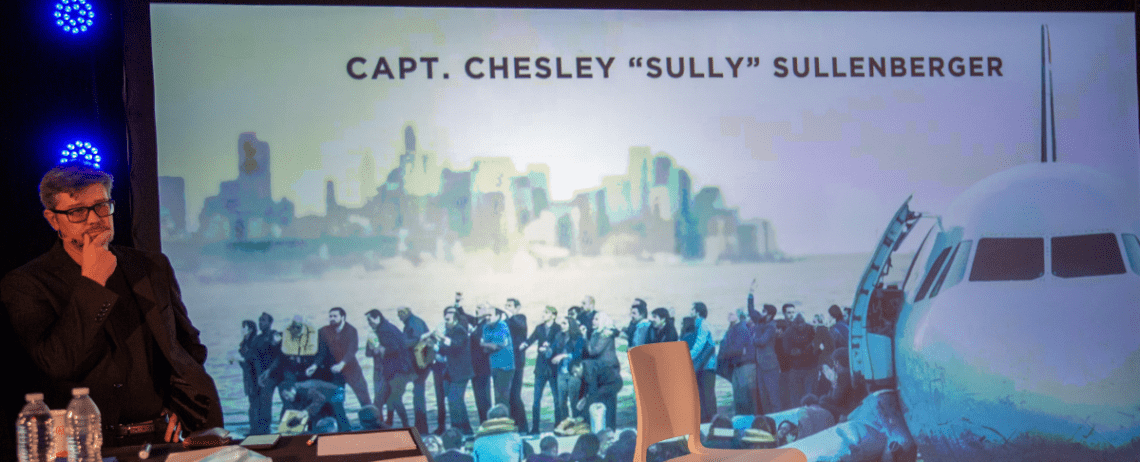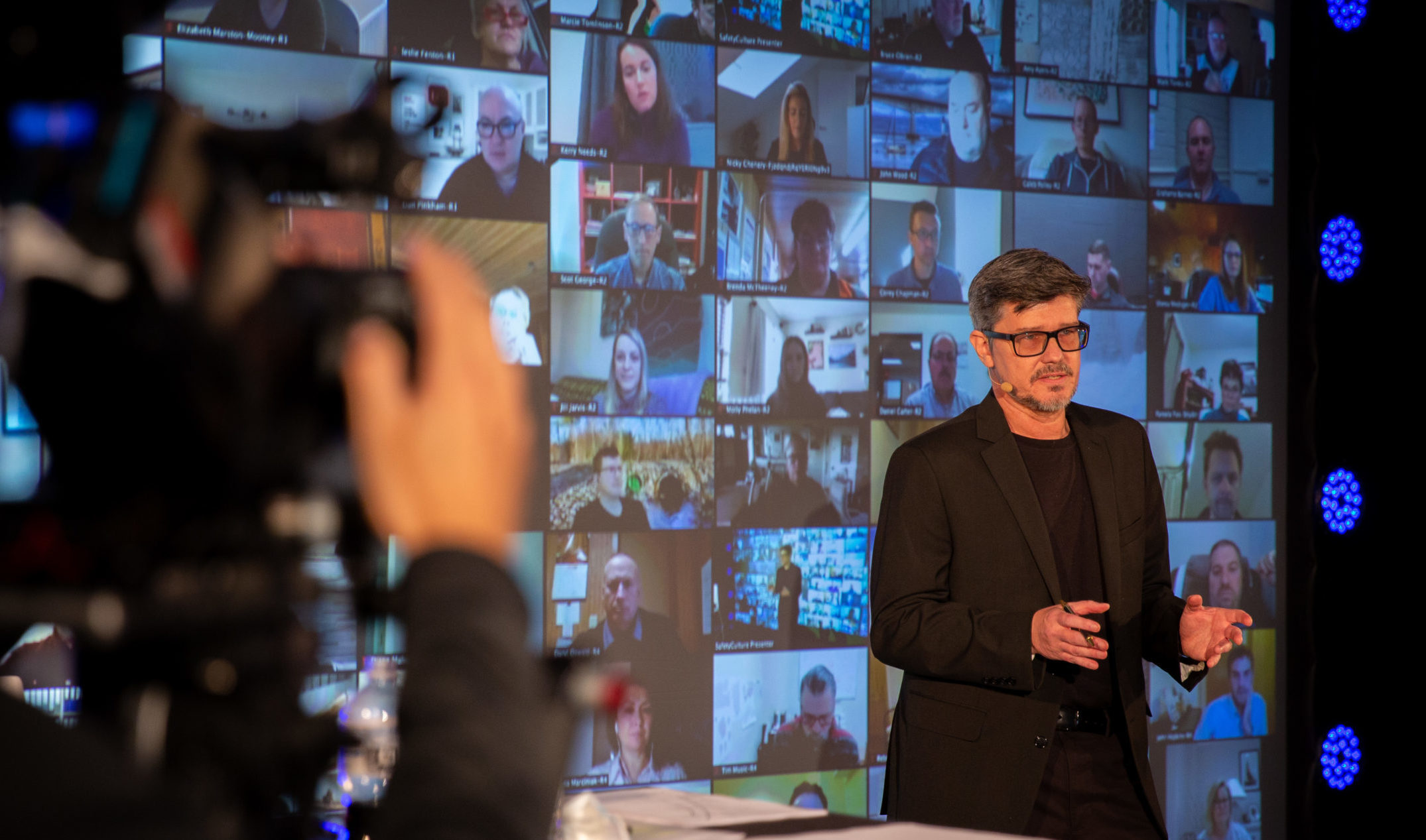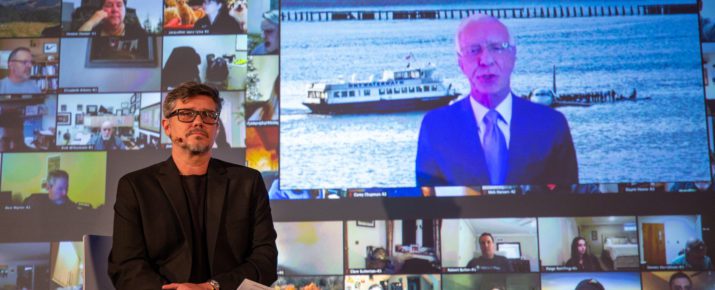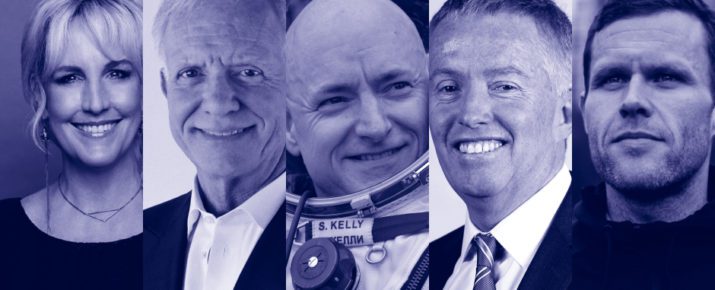7 Lessons From Successful Leaders | What We Learned At The SafetyCulture Virtual Summit
From Surviving To Thriving Virtual Summit | By | 20 Nov 2020 | 4 minute read

This year’s global summit was a SafetyCulture first. Broadcast live across three continents and multiple time zones, we heard from a diverse panel of speakers featuring the likes of Captain ‘Sully’ Sullenberger, Erin Brockovich, and NASA astronaut Captain Scott Kelly.
One of the challenges for this year’s global summit was clearing the heavy fog around 2020 — and finding a path forward with innovation and optimism. We asked: how can businesses find opportunity amid adversity? How can we move from surviving to thriving?

Over keynote speeches, fireside chats, and interactive Twitter conversations, we’ve found insights that will help answer those questions, as well as reshape our perspectives and approaches as we look forward to 2021.
Here’s a snapshot of what we learned at the SafetyCulture Virtual Summit 2020:
1. Incremental steps, lasting change – John McAvoy
We kicked off the keynote speakers with John McAvoy, the high-profile armed robber turned Nike athlete. Once addicted to what he perceived as the glamorous life of crime, he was able to successfully pivot his vision towards leaving a positive legacy and channel his energy into fitness and athletics, eventually breaking world records.
John spoke about the importance of building your walls of personal development brick by brick, day by day. Belief is the start of the journey, and was what drove John forwards throughout his amazing story:
‘It was having that belief, keeping myself in the present moment. Every day if I say I’m a little bit better, it was like putting another brick in the wall. It was all about dedication and tiny steps towards my journey.’
2. Risk is a factor of success – Captain Scott Kelly
Captain Scott Kelly’s epic year in space captivated the world and seized the imagination of millions. The NASA astronaut proved, quite literally, that the sky is not the limit. Scott is no stranger to high stakes. In fact, the risk of failure and setting these goals with the understanding that he may fail pushed him to see what he could truly achieve.
Scott offered a detailed depiction of what it really feels like to be blasted into space – the daunting feeling of being strapped into a rocket, and often lonely periods of isolation onboard. For him, teamwork was key:
“No problem has ever been solved by people saying ‘hey, let’s work apart’. Teamwork is what allows us to accomplish our goals.”
3. Knowledge is power – Erin Brockovich
The Erin Brockovich was next to grace our screens. The single mom turned environmental activist talked of the ‘stick-to-itiveness’ that saw her through the Hinkley groundwater contamination case, a dogged belief in her own fact-finding and insights.
To Erin, every person’s insight has an outcome for the greater good. Through the investigative process, she learned to trust in the facts she uncovered and the people she was working alongside.
“Leverage your community, your people. I think people are looking for permission to act… It’s amazing to watch them rise up and bring their collective in, and take action.”
Information is the driving force of change. It allows you to be your own hero. Erin spoke of the everyday people she’s seen in her line of work who’ve done extraordinary things, activists that have spurred action:
“Knowledge is power… It’s about putting power in people’s hands. We are giving people the tools that they need to rise from within, and spread in their community.”
4. Anyone can be a changemaker – Darren Winterford & Nigel Gan
Our Fireside chat with EdApp founder and CEO, Darren Winterford and Training Specialist and Portfolio Manager with the United Nations Institute for Training and Research (UNITAR), Nigel Gan put the spotlight on being a changemaker in a crisis. With over 3,000 learners in 150 countries, EdApp’s micro-learning platform is supporting some of the world’s poorest countries by helping them to address gaps and implement change. While COVID-19 brought many challenges this year, it also opened windows of opportunity – a realization that the unassuming mobile phone can be a real tool for change. Nigel Gan notes that:
“Knowledge and the ability to implement change is one of the most powerful things that you can share with anyone.”
5. Build an agile team – Craig Tiley
Craig Tiley, CEO of Tennis Australia and Director of the Australian Open shared his experiences on navigating some of the most difficult leadership challenges of his career. After the Australian bushfires wreaked havoc on the country, Craig knew he had to dig deep and take an adaptable approach to the rollout of the 2020 Australian Open.
Then, he was met with even more disruption as COVID-19 hit. Craig’s current challenge is to work out whether the 2021 Australian Open will be able to go ahead despite extended quarantine measures. He takes a positive outlook on operating in unchartered territory and calls on businesses to build passionate and agile teams around them:
“If we’re not an organization that can keep shifting, we’re not going to survive. I’ve always believed in building resilience with an agile workforce that knows at any point, things could change.”
6. Adapting is our superpower – Captain Chesley ‘Sully’ Sullenberger
Captain Sully delivered his powerful story of landing a passenger jet on the Hudson River, a crisis situation that called for an extreme amount of calm, focus, and logic. This gave him insight into the power of humanity in the face of adversity and the importance of learning, changing, and evolving along the way.
Checklists and technology can help us with formulating best practices. But you can’t have a checklist for everything, so it’s important to deviate from processes when necessary. To Sully, our capability for innovation and adaptation is what makes us unique and as humans, is our greatest strength:
‘Technology can only do what has been foreseen and for which it has been programmed. And while humans are often the most unpredictable part of any system, they are by far the most resilient and the most adaptable. And it’s humans who can face a sudden crisis, something they’ve not anticipated, never trained for, find a way to take what they know, adapt it and apply it in a new way to solve a novel problem.’
7. Better today than yesterday – Kelly Vohs
Kelly Vohs, CEO, LivCor and Beam Living, ended the day with some powerful words on leadership. To him, the only way to deal with adversity is to lose yourself in the service of others. That way, you can dedicate your focus to the things that matter – being better today than you were yesterday, however you can.
For Kelly, it’s actually really simple:
“It’s about people, product, then performance and profit; in that order.”
Important Notice
The information contained in this article is general in nature and you should consider whether the information is appropriate to your specific needs. Legal and other matters referred to in this article are based on our interpretation of laws existing at the time and should not be relied on in place of professional advice. We are not responsible for the content of any site owned by a third party that may be linked to this article. SafetyCulture disclaims all liability (except for any liability which by law cannot be excluded) for any error, inaccuracy, or omission from the information contained in this article, any site linked to this article, and any loss or damage suffered by any person directly or indirectly through relying on this information.





